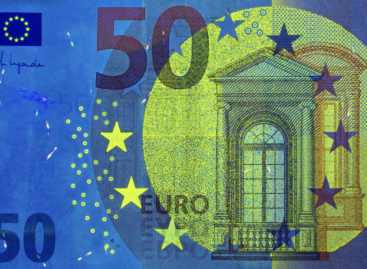Strong brands, strong Hungary: the Ministry of National Economy actively supports the branding efforts of domestic businesses
Strengthening a tax system that supports the competitiveness of domestic businesses, fair trade practices, and effective, family-friendly consumer protection – these were among the key topics discussed during the professional consultation between the Ministry of National Economy and the Hungarian Brand Association.
“A strong country is made complete by strong brands. The common goal of the government and economic players is to further strengthen the national economy by supporting the development of innovative, reliable brands that create real value for consumers, thereby increasing the country’s competitiveness.”
– stated Bence Gerlaki, State Secretary responsible for tax affairs, consumer protection, and trade at the Ministry of National Economy (NGM), after receiving Ágnes Fábián, President of the Hungarian Brand Association representing domestic FMCG businesses and head of Henkel Hungary, at his office. Bence Gerlaki assured the Brand Association that the ministry remains committed to cooperating with advocacy organizations, as these partners play a crucial role in enhancing economic performance.

Bence Gerlaki, State Secretary of the Ministry of National Economy and Dr. Ágnes Fábián, President of the Brand Association
“Our member companies interact with millions of Hungarian consumers on a daily basis, as they choose our products every day. Therefore, we act with the utmost responsibility to contribute to the security of domestic supply and the well-being of Hungarian families with reliable, sustainable, and competitively priced brands.”
– said Ágnes Fábián, adding that the players in the FMCG sector welcome the NGM’s economic action plan and the government’s firm measures aimed at stimulating the market, increasing consumption, and boosting the purchasing power of Hungarian consumers.

State Secretary Bence Gerlaki, President Dr. Ágnes Fábián, Chief of Cabinet Domonkos Jenei, and Secretary General Zoltán Fekete
The NGM strives for continuous and constructive dialogue with the professional advocacy groups representing domestic industries. A significant milestone in this effort was the current meeting with the Brand Association, which represents 70 member companies, 800 FMCG brands, an annual turnover of approximately HUF 2,800 billion, and more than 30,000 SME suppliers. Additionally, key topics of the discussion included the continuously growing domestic consumption, joint action against market players hindering fair competition, and the new governmental body guaranteeing more effective consumer protection and fairer trade practices for Hungarian families—the National Trade and Consumer Protection Authority, which has been operating under the professional supervision of the NGM since January 1, 2025. Besides consumer protection issues, taxation plans and opportunities also played a central role in the discussions. The NGM is committed to improving the business ecosystem, with a key focus on reducing administrative burdens and implementing measures aimed at tax simplification.
Related news
The Agrár Széchenyi Card Structure is being expanded with a new, additionally subsidized substructure
🎧 Hallgasd a cikket: Lejátszás Szünet Folytatás Leállítás Nyelv: Auto…
Read more >Due to the high level of interest in the Demján Sándor Capital Program, new applications will be temporarily suspended from January 16th.
🎧 Hallgasd a cikket: Lejátszás Szünet Folytatás Leállítás Nyelv: Auto…
Read more >Related news
Pálinka, my love…
🎧 Hallgasd a cikket: Lejátszás Szünet Folytatás Leállítás Nyelv: Auto…
Read more >







